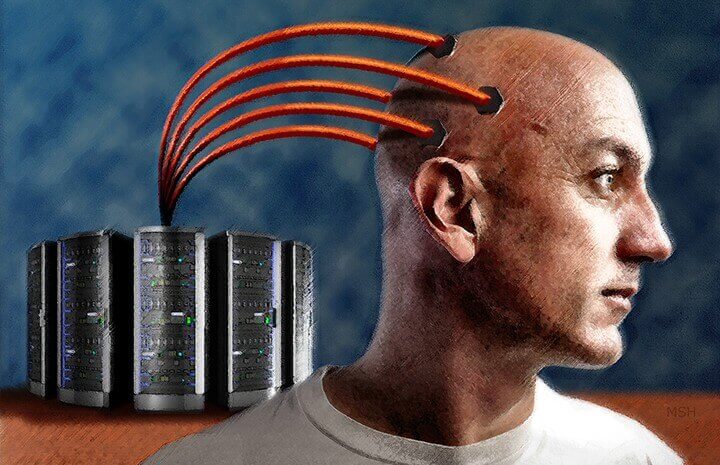The Internet brings the world to our fingertips, but it turns out that getting information online also has a startling effect on our brains: We feel a lot smarter than we really are, according to a Yale-led study published March 30 in the Journal of Experimental Psychology.
In nine different experiments with more than 1,000 participants, Yale psychologists found that if subjects received information through Internet searches, they rated their knowledge base as much greater than those who obtained the information through other methods.
“This was a very robust effect, replicated time and time again,” said Matthew Fisher, a fourth-year Ph.D. student and the lead author of the study. “People who search for information tend to conflate accessible knowledge with their own personal knowledge.”
For instance, in one experiment people searched online for a website that answers the question, “How does a zipper work?” The control group received the same answer that they would have found online, but without searching for it themselves. When later asked how well they understood completely unrelated domains of knowledge, those who searched the Internet rated their knowledge substantially greater than those who were only provided text. Prior to the experiment, no such difference existed.
The effect was so strong that even when a full answer to a question was not provided to Internet searchers, they still had an inflated sense of their own knowledge.
“The cognitive effects of ‘being in search mode’ on the Internet may be so powerful that people still feel smarter even when their online searches reveal nothing,” said Frank Keil, the Charles C. and Dorathea S. Dilley Professor of Psychology and Linguistics and senior author of the paper.
Keil recalls being cut off from Internet access during a hurricane, and says, “I felt myself becoming stupider by the hour.” For the younger generation, the effect may be even more pronounced. “The cell phone is almost like the appendage of their brain,” he said. “They don’t even realize it’s not real until they become unplugged.”
The research was made possible by a grant from the Fuller Theological Seminary/Thrive Center for Human Development in concert with the John Templeton Foundation.



Over use of the Internet can have a serious negative impact on a person’s physical, psychological, social, or vocational well-being. Millions now use the Internet as a source of information and entertainment. Most use it often without becoming dependent upon it. However, for some, involvement on the Internet starts to have dire consequences. Excessive Internet use may revolve around chat rooms, browsing; blogging, gambling, gaming and shopping.
Our cellphones, pc’s and tablets are the doorways to the information freeway. Is it not rather funny how if our phone or computer breaks down we feel so disconnected from the world.We rely on the internet to remain connected at all times and our shear terror and frustration when we are cut-off is proof of our dependence on the net.
We are becoming more and more dependent on the internet as our main source of information. It is so easily accessible that is it not, in fact, dumbing us down? We are losing our ability to rely on our memory and own knowledge of retrieving information since we can get it with a touch of a button. Finding information on the internet deteriorates our capability of total concentration, since it can be so distracting and with so much information popping up. We prevent ourselves from deep thought and long term memory. Our brains have now been trained to absorb knowledge quickly and in small amounts. Are we not then forgetting how to think for ourselves, since the answers are too easily found?
Working smarter, not harder, is the main intent of my managed it services company located in nyc, whose outsourced it services provide a host of computer support plan options to clients, including ppc reporting services, bare metal disaster recovery, server maintenance, and software upgrade management.
–Emil Isanov, Etech 7, Inc.
http://www.etech7.com/
Sad, but absolutely true. The fact that we can find any information we need in a few seconds via Google makes our brains lazier. We lose the ability to remember important information.
Abby, http://www.sofaclean.co.uk/
And how is this different than reading books? Or getting information from any other source? I’ll tell you why they WERE SMARTER., They looked it up on the internet and were smart enough to find it without having to make a special and out of the way trip to the library.. The worked smarter, not harder…